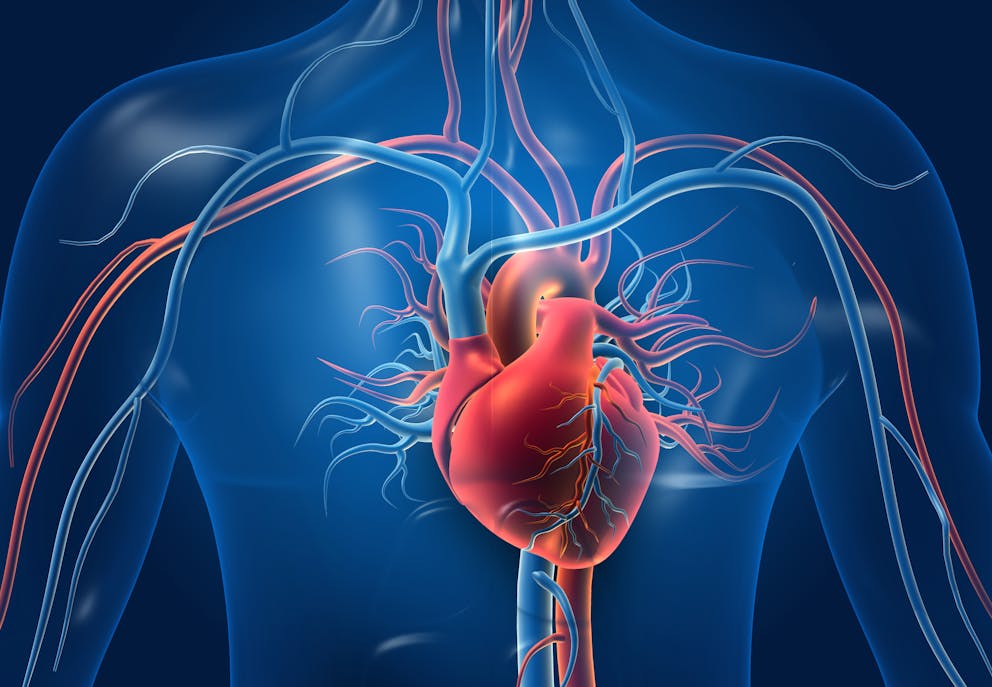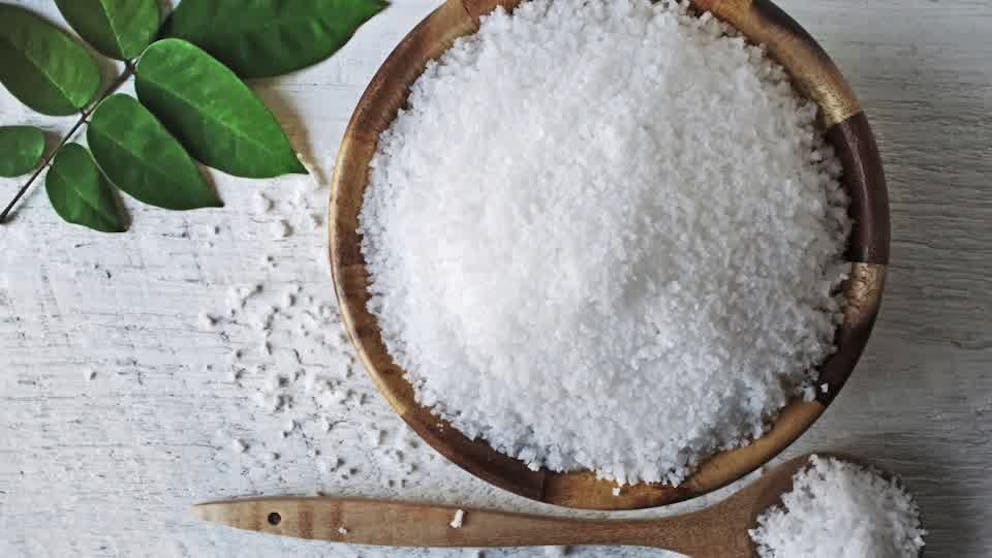Low Salt Increases Your Risk of Heart Attacks
Many people believe that consuming salt is detrimental to cardiovascular health. But does consuming less salt really protect your heart, or could it potentially harm it?
Learn about the effects of a low salt intake and what you can do to increase your salt levels for the improvement of your heart health.
The Controversy Surrounding Sodium Intake and Heart Health
Amidst the ever-evolving field of nutrition, a hot topic has emerged - sodium intake and its relationship with heart health. The PURE study, an extensive research initiative involving 137,000 participants from around the world (18 countries), ignited this debate.
Understanding the PURE Study's Findings
This revelation by the PURE study, published in a renowned medical journal, challenges conventional wisdom surrounding daily sodium intake and lower thresholds for maintaining optimal health.
It introduces us to what is known as a U-shaped association, a concept suggesting that excessive high and low dietary sodium levels can lead to high blood pressure.
Inaccurate sodium intake measurements are common due to unawareness of hidden sources in our diet.
Avoiding excessive table salt usage doesn't necessarily equate to restricting salt consumption effectively since processed foods contribute significantly towards people unknowingly consuming high quantities.
Different types of salts have varying effects on body functions, with sea salt containing beneficial minerals like potassium.
Debunking Common Myths About Sodium Intake
As we navigate through these new insights, it becomes crucial to debunk certain misconceptions about the subject matter. For instance, it is widely believed that all salt is harmful.
This couldn't be further from the truth: sea salt carries essential nutrients that help counterbalance the potential adverse impacts of higher sodium diets.
Another widely held belief revolves around reducing salty food items, thinking it would drastically reduce overall sodium intake.
However, data suggests that most American adults' average sodium intake comes not just from the salt they sprinkle onto meals at home but mainly from pre-packaged products.
It is essential to understand where most of the sodium comes from.
World Health Organization's Recommendations vs. Optimum Range
According to recent studies, the WHO's daily sodium intake guideline of 2.0 to 2.4 grams may not be the most suitable range for all. Some recent studies are suggesting otherwise.
Analyzing WHO's Daily Salt Recommendation
The guidelines from WHO were established to curb global hypertension and heart disease rates, conditions often linked with excessive sodium consumption or developing high blood pressure due to inaccurate sodium intake measurements.
But here's the catch: these recommendations lean heavily on older research data that may not fully encompass our current understanding of dietary salt impacts on health outcomes across diverse populations worldwide.
Identifying the Optimal Range for Daily Sodium Consumption
Avoiding excessive sodium intake is essential; however, new evidence suggests there might be such a thing as too little salt in your diet. Studies conducted by McMaster University found both low and high extremes of table salt can increase harmful heart failure risks.
This brings us back full circle - if we're restricting salt beyond certain limits or consuming way above recommended levels, it could lead to severe heart failure symptoms. So what should you do?
In light of this, the optimal daily range seems somewhere between four and five grams- significantly higher than currently suggested by WHO.
However, remember that each person needs to consider their unique circumstances when deciding the appropriate level of daily sodium consumption, considering genetic variations affecting individuals' responses and overall diet quality among different population groups studied.
We need a more nuanced approach considering an individual's specific health status, lifestyle factors, and broader context overall diet composition instead of a one-size-fits-all answer to the question, "How much table salt should I eat?"
The goal isn't just reducing the risk of cardiovascular disease deaths but also maintaining balanced body functions in which moderate sea salts play a significant role.
Importance of Potassium in Cardiovascular Health
Potassium is an essential mineral that plays a significant role in maintaining cardiovascular health. It is particularly crucial for regulating blood pressure, supporting kidney function, and optimizing heart performance.
Ensuring adequate potassium levels in your diet can help counterbalance the potential adverse effects of high-sodium diets.
Role of Potassium in Blood Pressure Regulation
Blood pressure regulation is one area where potassium proves its importance. This nutrient helps relax the walls of your blood vessels, lowering blood pressure levels.
According to research, individuals who consume ample amounts of dietary potassium tend to have lower blood pressure than those with low-potassium diets.
The relationship between sodium and potassium also affects hypertension or high blood pressure management.
High sodium intake can lead to increased water retention, which elevates blood pressure, while sufficient intake of potassium aids in flushing out excess sodium from our bodies through urine.
Effects Of Potassium Deficiency On Kidney Function
Kidneys are essential for maintaining the equilibrium of body liquids and electrolytes, including salt and potassium. When there is an insufficient amount of this mineral present, kidneys may struggle to balance, potentially leading to chronic disease (CKD).
Maintaining proper daily consumption, therefore, not only supports healthy renal function but also reduces risks related to other severe conditions such as stroke and coronary artery disease.
Low Sodium Levels Increase Aldosterone Hormone
Salt isn't just about seasoning; it plays a critical role in various bodily functions, too - one being hormone production, specifically aldosterone.
Low levels trigger an increase in the production process, causing potential harm when these hormones get excessively elevated.
Aldosterone Production Process Explained In Detail
This hormone is produced by the adrenal glands atop each kidney, playing critical roles like helping maintain the right balance between salt, potassium, and fluid volumes within our bodies.
We limit significantly below recommended values, responding by increasing secretion, attempting to compensate for the perceived deficiency.

Low Salt Heart Risks: Unraveling Sodium Intake Myths
Insufficient sodium intake can result in decreased sodium levels, which stimulates the production of the aldosterone hormone. Aldosterone is crucial in maintaining heart health and is found in table salt and various food items.
Therefore, excessively limiting salt consumption can adversely affect the body's sodium balance and hormonal regulation.
Understanding the Aldosterone Hormone Production Process
The adrenal glands, small organs above each kidney, produce several hormones, including aldosterone. This particular hormone is crucial as it helps regulate blood pressure by controlling the balance of potassium and sodium within our bodies.
A decrease in dietary sodium intake lower than recommended or high potassium levels stimulates the release of another hormone called angiotensin II. It prompts adrenal cortex cells to secrete more aldosterone into the bloodstream.
This increase leads kidneys to reabsorb additional amounts of sodium while excreting excess potassium through urine, thus maintaining electrolyte equilibrium.
Impact Of High Aldosterone On Your Body Functions
Overproducing this hormone due to avoiding excessive sodium intake isn't without consequences. It may cause elevated blood pressure since increased retention results in fluid buildup, raising arterial tension.
Developing high blood pressure often precedes other severe heart failure symptoms.
Risks Beyond Hypertension: High levels are not only associated with hypertension but are also linked with various forms of cardiovascular diseases such as left ventricular hypertrophy (enlargement or thickening of the pumping chamber) and arrhythmias (irregular heartbeat), among others (source).
Negative Impact on Renal Function: Chronic exposure could potentially harm renal function, leading to fibrosis and abnormal tissue development in both the heart and kidneys, increasing the risk of organ failure if unchecked.
Unraveling Fears Around Salt Consumption
The narrative surrounding salt consumption, particularly sea salt, often depicts danger and risk. However, contrary to popular belief, moderate sea salt intake can be essential in maintaining balanced body functions.
Of course, like any dietary component that could increase the risk of heart failure or high blood pressure if consumed excessively, it's crucial to exercise moderation while considering individual dietary requirements.
So, let's delve into the misconceptions about sodium intake and understand the benefits and risks of consuming this vital mineral.
Breaking Down Misconceptions About Sea Salt
Frequently, we hear warnings against excessive sodium intake due to its potential links with developing high blood pressure and heart disease.
But here's what most people miss: these concerns primarily relate to processed foods rich in table salt, not natural sea salts, which contain essential minerals our bodies need for optimal functioning.
Unlike refined table salts, sea salts retain their natural mineral content, including magnesium and potassium minerals known for their critical roles in regulating blood pressure levels effectively, helping individuals avoid developing high blood pressure.
Therefore, incorporating a moderate amount of such unrefined sources within one's diet may offer health advantages rather than posing risks when done correctly and adequately balancing other nutrients' intakes.

Benefits And Risks Associated With Sea Salt
Incorporating suitable amounts of sea salt into your daily meals could offer various advantages.
These include maintaining electrolyte balance, enhancing hydration levels in the body, and supporting optimal nervous system function due to their rich mineral content.
Furthermore, a study published in the journal PLOS ONE indicates that naturally sourced salts like Himalayan pink or Celtic grey are preferable as they contain trace minerals.
Conclusion
Recent research challenges the idea that lower salt intake always benefits heart health.
While excessive sodium consumption can lead to high blood pressure, overly restricting salt intake may also pose risks, including heart failure symptoms.
Optimal sodium intake seems to fall within a range higher than current WHO recommendations, emphasizing the need for individualized approaches. Additionally, potassium plays a crucial role in cardiovascular health, balancing the effects of sodium.
Moderation is key, and incorporating natural sea salts, rich in essential minerals, can offer benefits. Understanding the complexities of salt consumption is crucial for promoting heart health effectively.
Supporting Data
Previous blog
Plastic Pollution: Good and Bad NewsNext blog
6 Herbs Toxic to Your LiverTags

Popular
08/21/2024
55K views
02/23/2025
46.3K views
11/18/2024
277.7K views
03/18/2024
11/21/2022




